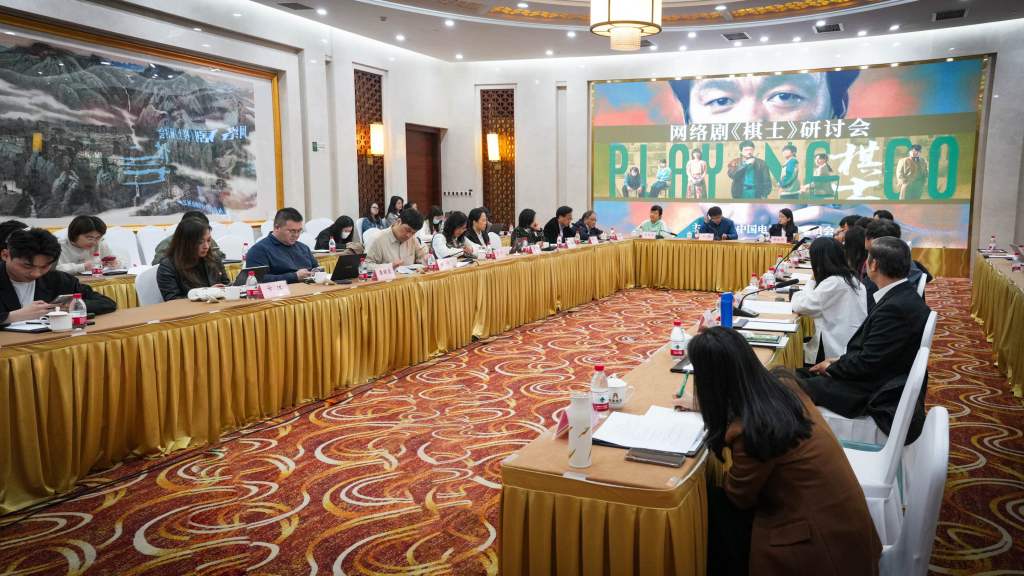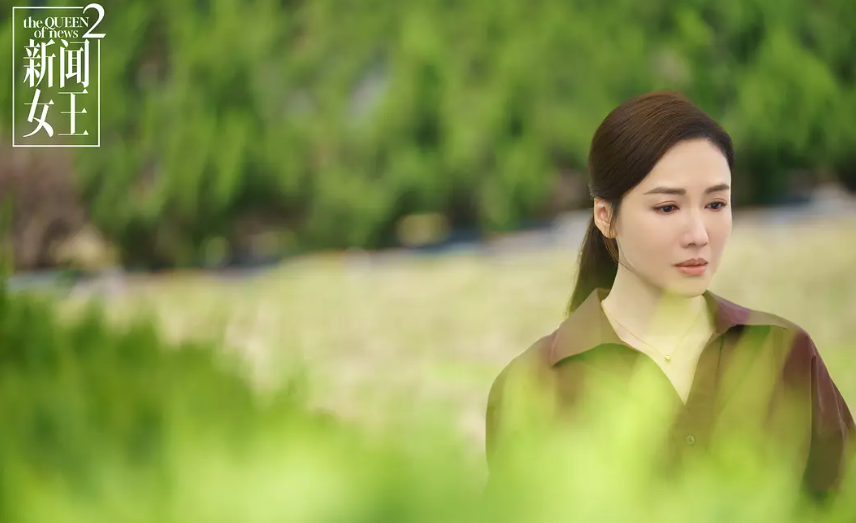
"The Chess Player" directed by Fang Yuan and Gao Nini is a realistic life-style crime drama. It tells the story of an ordinary Go teacher Cui Ye (played by Wang Baoqiang) in a southern city at the beginning of the century who was involved in a crime and gradually embarked on a criminal path.
It is worth mentioning that "The Chess Player" abandons the binary opposition of black and white in character portrayal, and creates complex individuals under the torrent of fate through non-linear narrative. Neither the "misguided" Cui Ye nor his brother Cui Wei, the police captain, are stereotyped images in the traditional sense. The creative team reflects the real predicament through the human struggles of these ordinary little people.

The scene of the "Chess Player" seminar
At a recent seminar, Wang Baoqiang, as a representative of the main creators, said: "The Chess Player is a particularly innovative, challenging and lifelike work. It is a story that explores the choice of fate and the multifaceted human nature. It uses the inner world and behavioral choices of the characters to construct the anchor point of human choice. Take Cui Ye as an example. He is an ordinary and even marginalized Go teacher. From passive involvement to active crime, he gradually loses himself, obeys the expansion of his inner desires, and the evil of human nature is released."
Wang Baoqiang believes that the character Cui Ye has a complex background. He is not simply white or black. He appears as a marginal figure who cannot keep up with the pace of development of the times. He wears an old and outdated sweater, is not liked by everyone in the workplace, and has a disharmonious family relationship. His son admires his brother who has a higher status than himself, and his mother is used to relying on his brother. "Cui Ye is such an abandoned person who has nothing but Go."
The turning point of Cui Ye's fate came when he knew his son was sick and in urgent need of money. In a robbery, Cui Ye defeated his brother Cui Wei for the first time using a Go strategy that he despised. Later, he watched his brother step into his plan of using a scapegoat. He made the cunning businessman fall into his trap and became the controller of the overall situation. "He enjoyed the feeling of controlling everything. As a chess player, he was inferior and arrogant, paranoid and twisted, but life is like chess, and every step is uncertain. He was eventually swallowed by the evil in his heart and stepped into the abyss."

Stills from The Chess Player
Regarding the controversy surrounding the drama, Wang Baoqiang said, "I've seen many viewers online comment on why they didn't do this or that when they first started watching the drama. After watching the entire drama, each viewer will get a different answer. When viewers with the answers watch the drama a second or third time, it's as if they are watching a different drama than the first time, and they will get a different feeling. The open-book format without any definition is also a new and challenging creative mode that we deliberately wanted to try, and it has also brought different definitions of The Chess Player to the audience."

Stills from The Chess Player
There are many plot settings that seem absurd and abrupt, but in fact what they want to express is the uncertainty of life. Everyone's choices in these unexpected events create different lives.
"So this kind of unpredictable and unthinkable curiosity about what he would choose and what he would do has become a short suspense in the play. "The Chess Player" is also a live broadcast of Cui Ye's life. Back to the identity of an actor, to be honest, playing this gray character has a kind of pain of being torn apart, like the torment of shedding a layer of skin. In order to present this reality, I must first make myself believe that I am Cui Ye, but his three views and choices are contrary to mine. I am often split. I will be very anxious when filming, and even dare not face Cui Ye for a long time after filming. But filming this drama also brought me a lot of enlightenment. Good and evil are like two sides of the same mirror. Under the refraction of different light, they reflect the light and shadow of human nature. Everyone has a dark side in their heart. How to make the right choice is particularly important."

Stills from "The Chess Master", Wang Baoqiang and Chen Minghao play a pair of brothers
Wang Baoqiang is also the producer of "The Chess Player". It took five years from script writing to filming and broadcasting. "The Chess Player explores how life experiences change people, and how people should guard their hearts when experiencing difficulties and temptations. "The Chess Player" is a very important attempt in my life. As a producer, I have been reading netizens' comments, and I am very pleased to see many discussions about the details in the play and human nature. I am actually not a person who is good at expressing myself. I am used to communicating with the audience through my works. When I hear feedback from the audience, whether it is positive or critical, I will think carefully and summarize it. It is because of these feedbacks that I can continuously improve every creation."
Director and screenwriter Fang Yuan shared his creative principle of "slow down when meeting people, fast when meeting events" at the meeting, focusing on the three conflicts between people, between people and the environment, and between good and evil in people's hearts: "Use characters to promote events, and then use events to influence characters. The choices of characters once again determine the direction of events and their ultimate fate."


